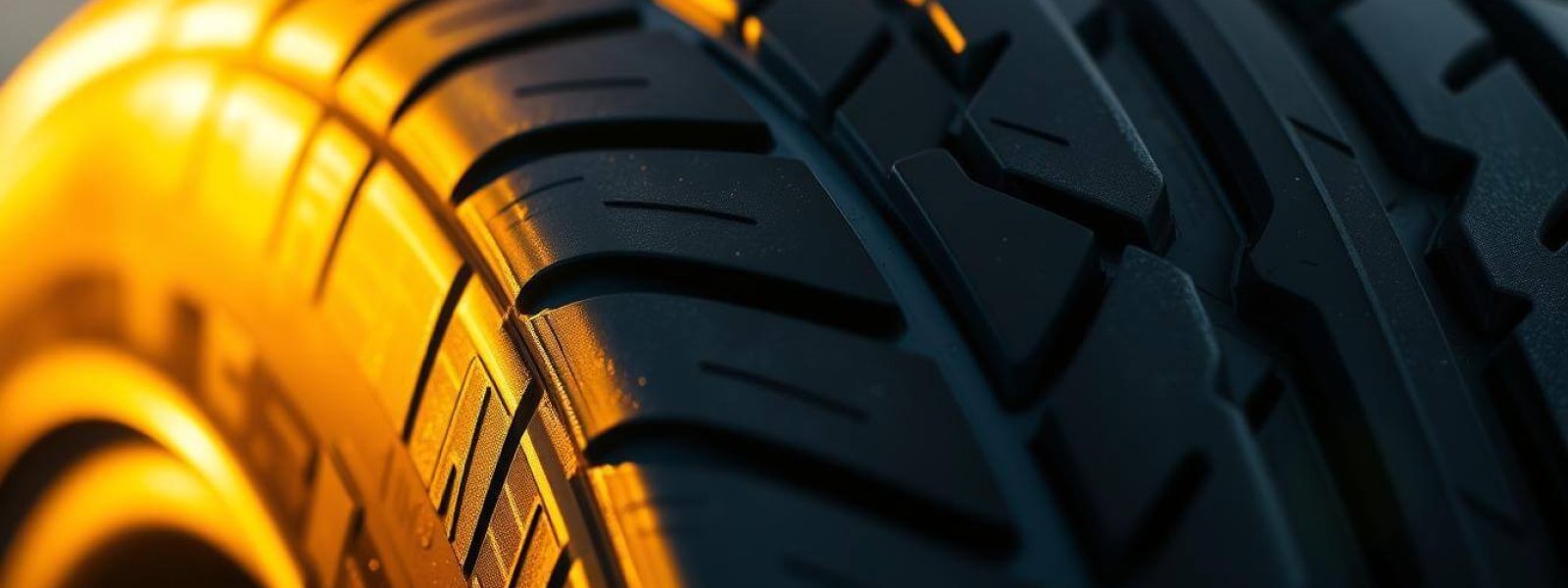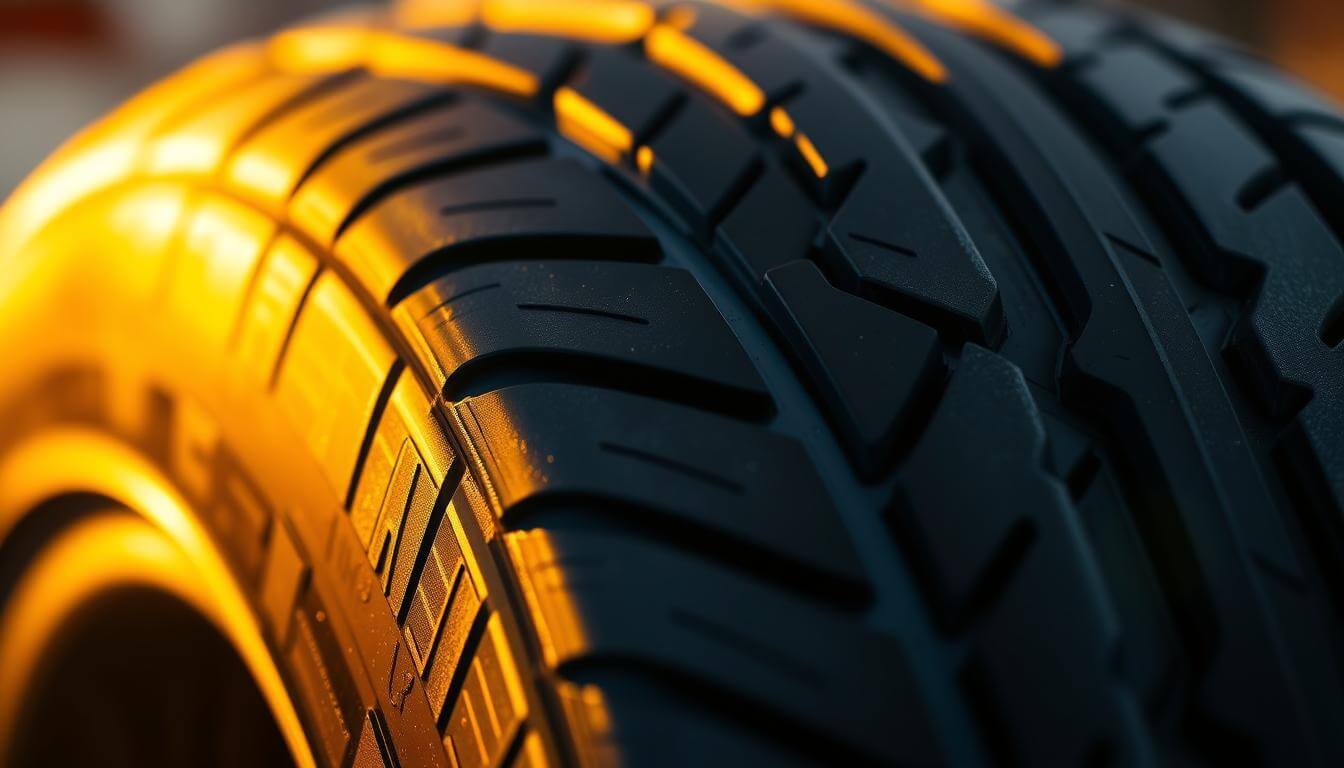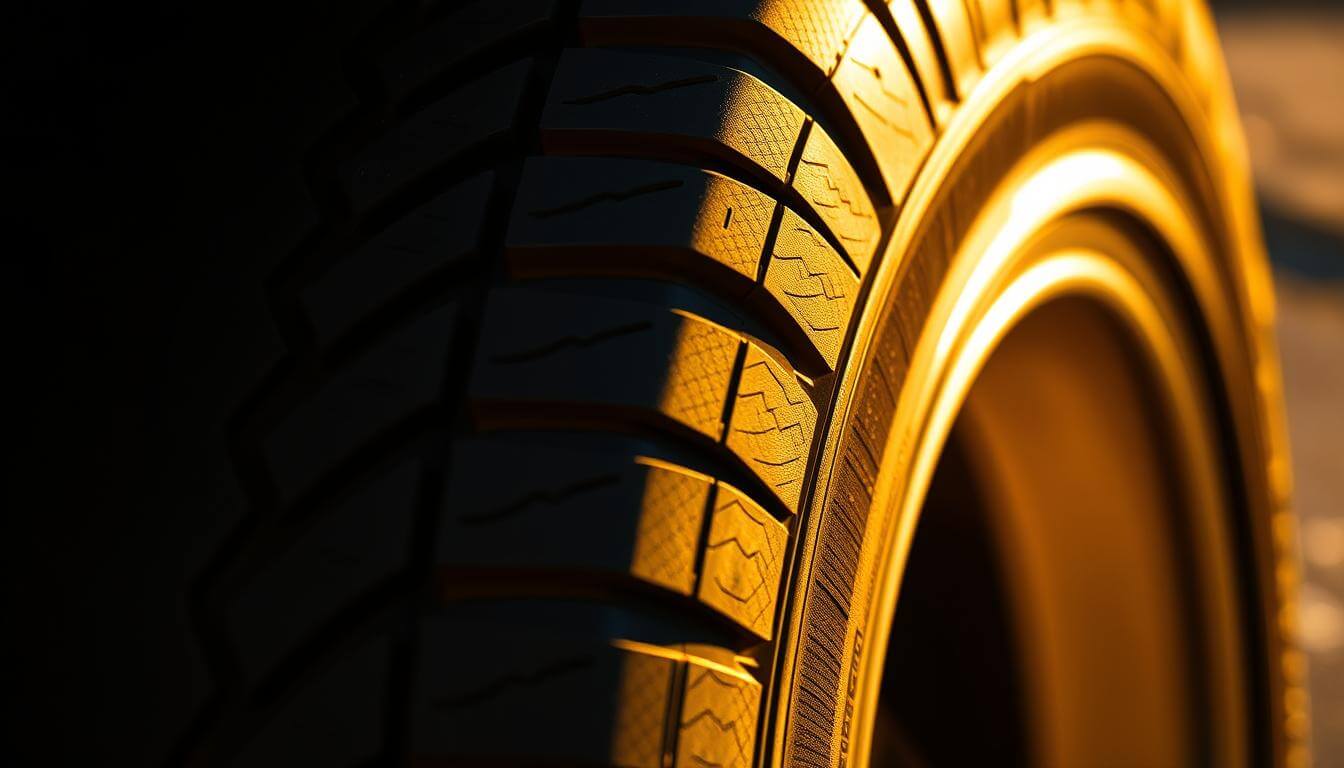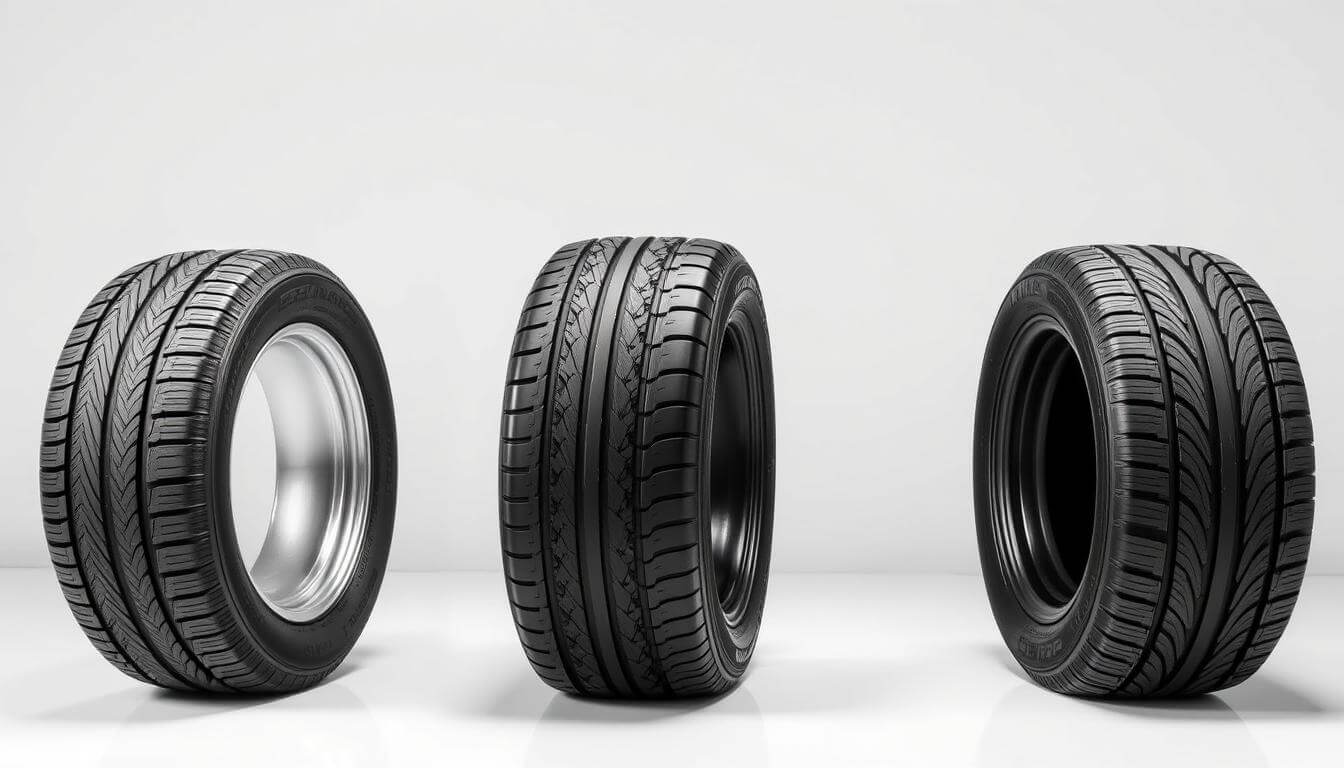Have you ever wondered about summer tires durability? Whether you’re cruising down a sunny highway or navigating wet city streets, understanding the lifespan of your tires is crucial for both performance and safety. Summer tires are designed to deliver exceptional grip and handling in warm weather, but their durability comes with some trade-offs.
Engineered with a softer rubber compound for maximum traction, summer tires typically last between 20,000 to 40,000 miles. However, this lifespan can vary significantly depending on your driving habits, road conditions, and how well you maintain them. For instance, aggressive driving or frequent braking can reduce their lifespan by up to 15%, while proper tire rotation can extend it by 25% or more.
Unlike all-season tires, summer tires are not built for cold weather. In fact, their performance drops sharply in temperatures below 45°F, making them less effective in winter conditions. This raises an important question: are summer tires the right choice for your driving needs? In this article, we’ll explore the factors that influence the lifespan of summer tires and provide tips on how to maximize their performance and durability.
Key Takeaways
- Summer tires last between 20,000 to 40,000 miles on average.
- Softer rubber compounds provide better grip but reduce lifespan.
- Aggressive driving can cut tire life by up to 15%.
- Proper maintenance, like tire rotation, can extend lifespan by 25% or more.
- Summer tires perform best in temperatures above 45°F.
Understanding the Basics of Summer Tires
Are you curious about what sets summer tires apart from other types? Summer tires are specifically designed to deliver exceptional performance in warm weather conditions. Their unique design makes them ideal for drivers who prioritize grip and handling on dry roads.
What Makes a Summer Tire Unique
Summer tires are built with a specialized rubber compound that stays softer in high temperatures. This softer rubber provides better traction and allows for a larger contact patch with the road, improving braking and cornering. The tread pattern is designed to maximize grip on dry surfaces, making them perfect for performance driving.
Ideal Conditions and Performance Benefits
These tires excel in temperatures above 45°F, offering precise steering and responsive braking. The tread design is optimized for warm, dry conditions rather than wet or snowy environments. While they may not last as long as all-season tires due to their softer compound, the performance benefits make them a great choice for sports cars and drivers seeking superior handling.
| Feature | Summer Tires | All-Season Tires |
|---|---|---|
| Tread Depth | Shallower for better grip | Deeper for longer lifespan |
| Rubber Compound | Softer for maximum traction | Harder for durability |
| Performance Conditions | Warm, dry roads | Various conditions |
When choosing tires, consider your driving habits and the climate. Summer tires offer unmatched performance in their ideal conditions, making them a worthwhile investment for many drivers.
Exploring Summer Tires Durability
Understanding how long your summer tires will last can help you make informed decisions about your vehicle’s maintenance. Summer tires are designed to offer exceptional grip and handling in warm weather, but their lifespan is influenced by several factors.
Expected Mileage and Lifespan Insights
On average, summer tires last between 20,000 to 40,000 miles. This range is shorter compared to all-season tires due to the softer rubber compound used, which enhances performance but sacrifices durability. Aggressive driving can reduce this lifespan by up to 15%, while proper maintenance, like regular tire rotation, can extend it by 25% or more.
Tread Depth, Rubber Compound, and Warranty Considerations
The tread depth of summer tires is shallower than that of all-season tires, contributing to quicker wear. The rubber compound, being softer, provides better traction but wears faster. Many summer tires lack treadwear warranties, which is an important consideration when evaluating their expected life. Even minor design variations, such as tread depth or compound type, can significantly impact longevity.
When comparing different summer tire options, it’s crucial to examine these factors to find the best fit for your driving needs and habits.
🚗 Need New Summer Tires? Get Them Delivered & Installed Hassle-Free!
If your summer tires are worn out or you’re looking for a durable, high-performance upgrade, now is the perfect time to invest in a new set of tires. Amazon offers a wide selection of top-rated summer tires at great prices.
✅ Plus, Amazon helps you find professional tire installation services near you—so you can drive with confidence!
🔗 Shop Summer Tires + Get Professional Installation on Amazon
Key Factors Affecting Tire Lifespan
When it comes to understanding how long your tires will last, several factors come into play. Environmental conditions, driving habits, and maintenance routines all significantly influence the lifespan of your tires. By addressing these elements, you can ensure your tires perform optimally and last as long as possible.
Impact of Driving Conditions and Weather
Environmental factors, particularly temperature and weather, play a crucial role in determining tire lifespan. Extreme cold, especially below 45°F, can cause the rubber compound to harden, reducing grip and performance. This is why summer tires are not recommended for winter use, as their effectiveness drops sharply in such conditions. Additionally, driving on rough roads or engaging in aggressive driving can lead to increased wear and tear, potentially reducing the tire’s lifespan by up to 15%.
Influence of Maintenance and Care
Regular maintenance is essential for extending the life of your tires. Checking tire pressure regularly ensures even wear and optimal performance. Proper tire rotation can extend lifespan by up to 25%, while aligning your wheels helps prevent uneven wear. Following the manufacturer’s recommendations is key to maintaining both performance and longevity. Neglecting these practices can lead to premature wear and reduced efficiency.
By considering these factors and adopting good maintenance habits, you can enjoy a safer and more efficient driving experience. Remember, taking care of your tires is an investment in your vehicle’s performance and your safety on the road.
Comparing Summer, All-Season, and Winter Tires
When it comes to choosing the right tires for your vehicle, understanding the differences between summer, all-season, and winter tires is essential. Each type is designed for specific driving conditions, and making the right choice can significantly impact your safety and driving experience.
Tread Design and Rubber Compound Differences
Summer tires are built for maximum performance on dry roads. Their tread design features large, rigid blocks that provide exceptional grip and handling. The rubber compound is softer, allowing for better traction and responsiveness. All-season tires, on the other hand, offer a balance of performance and durability. Their tread is deeper and more flexible, making them suitable for a variety of conditions, including light winter driving. Winter tires are specifically designed for cold weather and snowy conditions. They feature specialized tread patterns with small slits, known as sipes, that improve traction on snow and ice. The rubber compound in winter tires stays flexible in freezing temperatures, ensuring better grip and control.
Performance in Dry, Wet, and Cold Conditions
Summer tires excel in warm, dry conditions, delivering precise steering and responsive braking. However, their performance drops significantly in cold weather. All-season tires provide a good balance of performance and comfort, handling both dry and wet roads effectively. They are a great choice for drivers who experience mild winters. Winter tires are designed to handle harsh, snowy conditions. Their unique tread design and rubber compound ensure maximum traction and control on icy and snowy surfaces, making them the best option for drivers in areas with cold climates.
Key Differences at a Glance:
- Summer tires: Best for dry roads, superior grip and handling.
- All-season tires: Balanced performance, suitable for light winter conditions.
- Winter tires: Specialized for snow and ice, improved traction in cold weather.
By understanding these differences, you can make an informed decision about which tire type is right for your driving needs and environment.
☀️ Maximize Your Safety & Performance – Order New Summer Tires Today!
Your summer tires’ durability is crucial for fuel efficiency, grip, and overall road safety. If it’s time to replace your tires, don’t wait—Amazon makes it easy to find the best tires for your car and even schedule installation in your area for a seamless experience!
🔥 Get your summer tires delivered fast and installed professionally!
🔗 Find the Best Summer Tires + Installation Services on Amazon
Conclusion
Now that you’ve explored the world of summer tires, it’s time to make informed decisions for your vehicle. Remember, summer tires are all about performance in warm weather, but they come with a trade-off in durability. Their softer rubber compound offers excellent grip but means a shorter lifespan compared to all-season tires.
When choosing between summer, all-season, and winter tires, consider your climate and driving habits. Summer tires shine in temperatures above 45°F, while winter tires are better for colder conditions. All-season tires offer a balanced option but may not excel in extreme weather.
Maintenance is key to extending the life of your tires. Regular checks, proper rotation, and following manufacturer guidelines can make a big difference. By taking care of your tires, you’re investing in both performance and safety.
So, evaluate your driving style and local weather to pick the right tires for your needs. With the tips from this guide, you’ll be well-equipped to make the best choice for your vehicle. Happy driving!
☀️ Want to know everything about summer tires? From choosing the right set to understanding their performance in different conditions, check out our complete summer tire guide for expert recommendations:
🔗 Everything You Need to Know About Summer Tires: A Powerful & Reliable Summer Tires Guide in 2025
FAQ
1. How long do summer tires last?
The summer tires lifespan depends on driving habits and weather conditions. Typically, a set of summer tires lasts between 20,000 to 50,000 miles, but high-performance summer tires may wear out faster than all-season tires.
2. How do I know when to replace my summer tires?
Check the tread depth—if it’s below 1/16 of an inch, the tires must be replaced. Look for cracks in the sidewalls, uneven wear, or signs of low rolling resistance affecting grip. Regular checks ensure your tires maintain good braking performance on dry and wet roads.
3. Do summer tires last longer than all-season tires?
No, summer tires vs. all-season tires have different wear characteristics. Summer tires provide better performance in hot and dry conditions, but they wear out faster due to their softer rubber compounds. All-season tires tend to have a longer tread life because they are made of harder materials for performance in most weather conditions.
4. What factors affect summer tire durability?
Several factors impact summer tires durability, including:
✅ Driving habits – Frequent highway driving at high speeds wears them out faster.
✅ Weather conditions – Temperatures drop in colder weather, affecting rubber flexibility.
✅ Road conditions – Driving in urban areas with frequent braking can shorten lifespan.
✅ Tire maintenance – Tire rotation and correct pressure improve longevity.
5. Can I use summer tires in the snow?
No, summer tires in winter conditions are not a good choice. Their rubber compound hardens in low temperatures, reducing grip. If you live in a climate with snow or ice, it’s recommended to use a set of winter tires or at least all-season tires.
6. What’s the difference between summer and all-season tires?
- Summer tires provide better handling and shorter braking times in hot and dry conditions.
- All-season tires are more versatile, handling mild winter conditions but offering less performance in the summer months.
- Summer tires vs. all-season tires debate depends on driving conditions and whether you need tires all year.
7. How does tread depth affect tire performance?
Adequate tread depth improves traction and grip, especially in wet conditions. Shallow tread increases braking distances and affects performance on dry and wet roads. Regularly checking tread life ensures better fuel efficiency and handling while also reducing noise levels.
8. How does the rubber compound affect summer tire performance?
The rubber compound in summer tires is softer, enhancing grip on dry roads and performance in the summer months. However, low temperatures make them stiff, reducing efficiency and handling while also affecting braking.
9. What’s the difference between summer and sport tires?
Sport tires are designed for high-performance vehicles, offering enhanced grip and handling at highway speeds. Summer tires provide a balance of performance and tread life, making them suitable for everyday driving in warmer weather conditions.
10. What are the best summer tires for SUVs and sedans?
The best summer tires review varies based on vehicle type:
- For SUVs, tires with strong tread life and wet road performance are ideal.
- For sedans, tires that provide good performance at highway speeds with straighter grooves for preventing hydroplaning are preferred.



